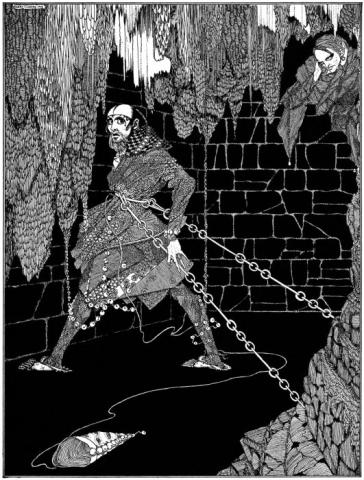My Thoughts
The Cask of Amontillado focuses on a very adamant quest for revenge. Revenge for what, we do not know, but whatever wound was inflicted on the protagonist must have been extremely offensive in the most abhorrently abominable manner. The story follows both the protagonist and antagonist, Fortunato, as they journey to see a cask of amontillado—a sherry-like wine. Whether this cask of wine exists or not we do not know, but it allows the main character to easily trick the man who inflicted so much personal damage into traveling into a damp and dripping labyrinthian catacomb to his abysmal doom.
The first rule in war is to know thy enemy. The protagonist had obviously adhered to this maxim for he knew the exact method in which to get Fortunato to recklessly venture deep inside an unknown charnel subterranean world. Even after suggesting many times that Fortunato should turn back, the protagonist knew he would do no such thing at the very mention of his implied enemy, Luchesi. Pride would lead Fortunato, like many others, to his agonizing death.
Is there symbolism in this story? I don't think so. It seems to be a rather clear-cut case of revenge. Do not insult the Montresor family, and if you do, do not venture into their extensive wine cellar. And if you do end up in their wine cellar, try and stifle your insults as you venture throughout its expanse. In pace re quiescat Fortunato.
My Rating
I rate this short story a 4 out of 5. I enjoyed the intensity build up as the two characters slowly crept through the dark and damp passages of the abysmal catacombs. I loved the very sagacious ways that the protagonist manipulated Fortunato by implying that the nitre (potassium nitrate) may be too strong for him and that an implied enemy of his, Luchesi, may be able to test the amontillado in his stead. There are shades of the Count of Monte Cristo in this story which I believe partially served as an inspiration for this short story.

Add new comment